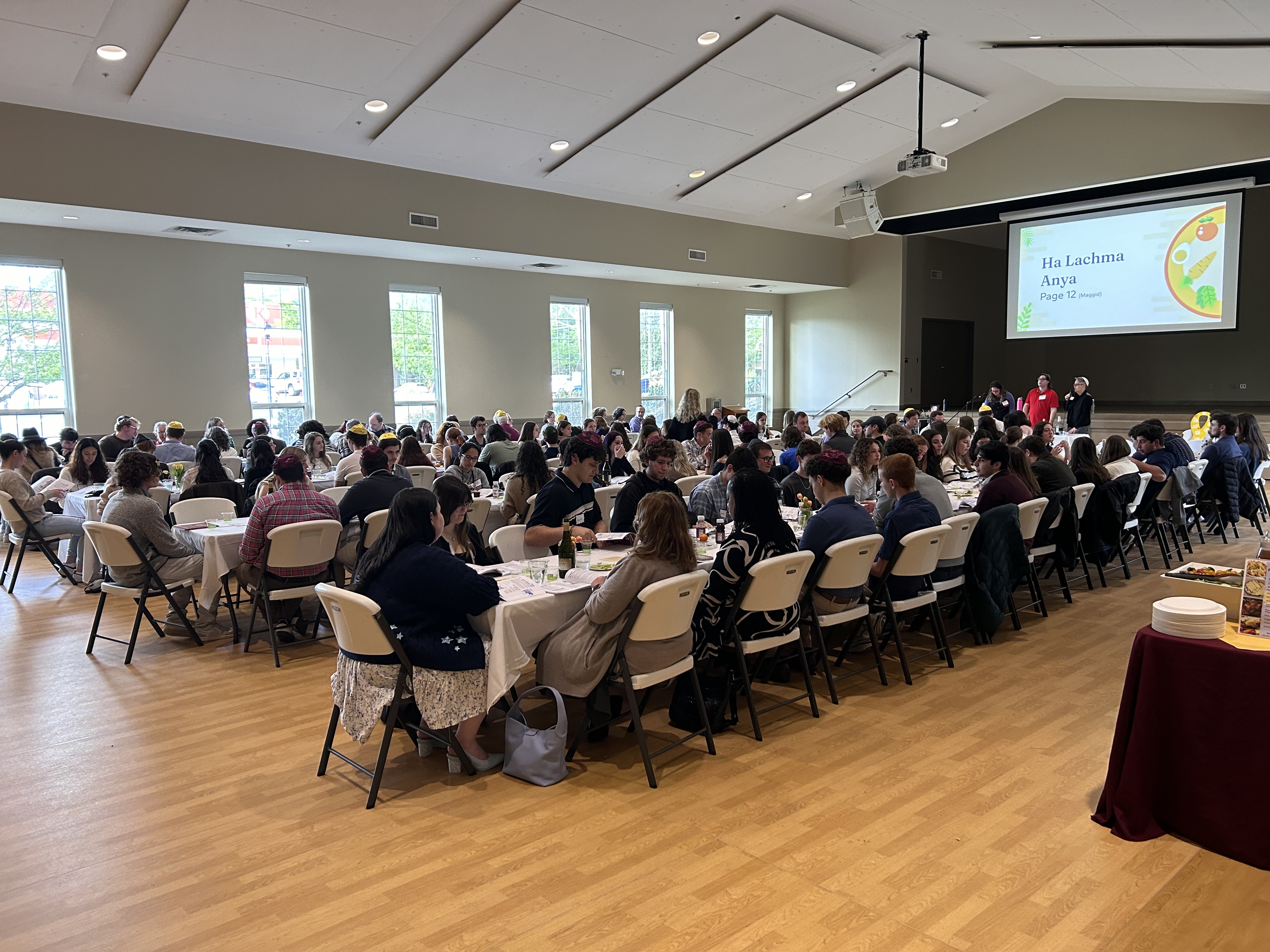Elon University’s Jewish community is currently honoring Passover, which continues until April 20.
Each year, Elon University’s Jewish community gathers around tables set with matzah and grape juice every spring to retell the Passover story. Passover began on Saturday, April 12, and continues until Sunday, April 20, but this year is even more difficult for some.
“There are Jews, Israelis still held hostage since Oct. 7 in Gaza, and I think it’s hard to celebrate liberation when you know they’re members of the Jewish community still not liberated,” said Rabbi Maor Greene, associate chaplain for Jewish Life at Elon. “It’s not important to dwell on folks not liberated at our seder, but we will have an empty chair to honor the hostages.”
The name “Passover” comes from the miracle in which God “passed over” the houses of the Israelites, sparing them from death during the 10th plague in Egypt.
“I love that the fact that it’s spring, because it’s like everything waking up,” said Boaz Avraham Katz, the Jewish Educator of Elon University. “It’s starting to get green and warming, but I like that we as a people are reminding ourselves of the importance of freedom.”
Jewish Life at Elon focuses on providing community, and the leadership for the Passover seder (which translates to “order” in English) is no different. Miti Pottebum ’27 is one of the co-religious chairs of Hillel who helps plan the seder with Rabbi Greene.
“My role as rabbi is in partnership with Boaz and religious-ed chairs to put a seder together that’s meaningful for the Jewish community on campus,” said Rabbi Greene.
When it comes to the seder itself, the Jewish Life team at Elon creates many traditions that allow students to feel that family connection at their home away from home.
“We have the senior table where all the seniors sit for their last Passover, and we celebrate that,” Avraham-Katz said. “We do the four questions, so the young ones, the first years begin, then the sophomores, and so on.”
Another tradition with the Passover Seder is breaking the middle matzah and hiding it away for the participants to find.
“I love the fact that we do an afikomen hunt because people go crazy trying to find the gifts that are hidden,” Avraham-Katz said.
One of the biggest challenges of creating a seder for people with different backgrounds is making the evening accessible for everyone, but the Jewish Life team is prepared.
“We use a Haggadah (a book that follows the seder) that has English, Hebrew, and transliteration, and includes details with explanations and commentaries,” Pottebaum said. “Throughout the seder, we have a slideshow (also with English and Hebrew) that we’ll use as we go through the Haggadah.”
Another challenge that comes with the holiday is the fact that Jews don’t eat leavened bread due to their ancestors not having enough time to cook the dough into bread when leaving Egypt. So, this year, there will be a traditional chicken dish and brisket. Dietary restrictions, including allergies, will also be minded.
Once the seder has concluded, the Jewish Life team hopes people walk away knowing that this university is a community for them.
“We want them to feel that they had a good time,” Avraham-Katz said. “By good experience, I mean that they participated and sang, and they felt a bit like home.”
“I hope that folks experience a sense of joy being Jewish,” Greene shared. “There’s something about singing Mah Nishtanah (The Four Questions) and Dayenu that makes you feel Jewish.”
As students and staff reflect on the holiday, they are reminded that even during the challenging times, unity and hope can be found around the table.



